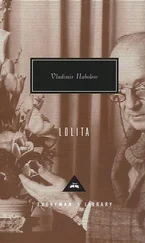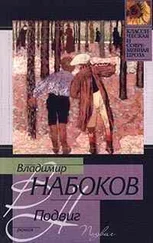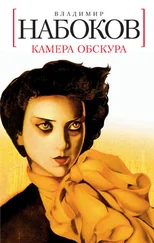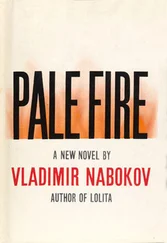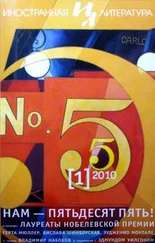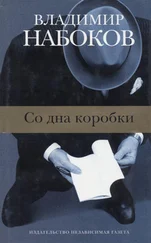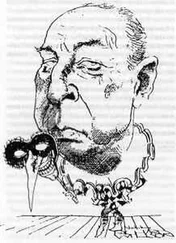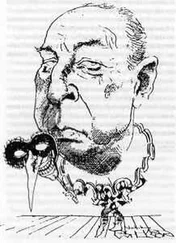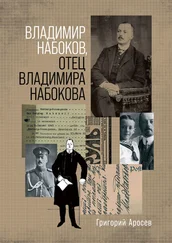Владимир Набоков - Ada, or Ador - A Family Chronicle
Здесь есть возможность читать онлайн «Владимир Набоков - Ada, or Ador - A Family Chronicle» весь текст электронной книги совершенно бесплатно (целиком полную версию без сокращений). В некоторых случаях можно слушать аудио, скачать через торрент в формате fb2 и присутствует краткое содержание. Жанр: Классическая проза, Современные любовные романы, на английском языке. Описание произведения, (предисловие) а так же отзывы посетителей доступны на портале библиотеки ЛибКат.
- Название:Ada, or Ador: A Family Chronicle
- Автор:
- Жанр:
- Год:неизвестен
- ISBN:нет данных
- Рейтинг книги:3 / 5. Голосов: 1
-
Избранное:Добавить в избранное
- Отзывы:
-
Ваша оценка:
- 60
- 1
- 2
- 3
- 4
- 5
Ada, or Ador: A Family Chronicle: краткое содержание, описание и аннотация
Предлагаем к чтению аннотацию, описание, краткое содержание или предисловие (зависит от того, что написал сам автор книги «Ada, or Ador: A Family Chronicle»). Если вы не нашли необходимую информацию о книге — напишите в комментариях, мы постараемся отыскать её.
Ada, or Ador: A Family Chronicle — читать онлайн бесплатно полную книгу (весь текст) целиком
Ниже представлен текст книги, разбитый по страницам. Система сохранения места последней прочитанной страницы, позволяет с удобством читать онлайн бесплатно книгу «Ada, or Ador: A Family Chronicle», без необходимости каждый раз заново искать на чём Вы остановились. Поставьте закладку, и сможете в любой момент перейти на страницу, на которой закончили чтение.
Интервал:
Закладка:
p.109. blin: Russ., pancake.
p.109. qui le sait: who knows.
p.110. Heinrich Müller: author of Poxus, etc.
p.111. Ma soeur te souvient-il encore: first line of the third sextet of Chateaubriand’s Romance à Hélène (‘Combien j’ai douce souvenance’) composed to an Auvergne tune that he heard during a trip to Mont Dore in 1805 and later inserted in his novella Le Dernier Abencerage. The final (fifth) sextet begins with ‘Oh! qui me rendra mon Hélène. Et ma montagne et le grand chêne’ — one of the leitmotivs of the present novel.
p.111. sestra moya etc.: my sister, do you remember the mountain, and the tall oak, and the Ladore?
p.111. oh! qui me rendra etc.: oh who will give me back my Aline, and the big oak, and my hill?
p.112. Lucile: the name of Chateaubriand’s actual sister.
p.112. la Dore etc.: the Dore and the agile swallow.
p.112. vendage: vine-harvest.
p.114. Rockette: corresponds to Maupassant’s La Petite Rocque.
p.114. chaleur du lit: bed warmth.
p.115. horosho: Russ., all right.
p.117. mironton etc.: burden of a popular song.
p.118. Lettrocalamity: a play on Ital. elettrocalamita, electromagnet.
p.121. Bagrov’s grandson: allusion to Childhood Years of Bagrov’s Grandson by the minor writer Sergey Aksakov (A.D. 1791–1859).
p.122. hobereaux: country squires.
p.122. biryul’ki proshlago: Russ., the Past’s baubles.
p.124. traktir: Russ., pub.
p.124. (avoir le) vin triste: to be melancholy in one’s cups.
p.124. au cou rouge etc.: with the ruddy and stout neck of a widower still full of sap.
p.124. gloutonnerie: gourmandise.
p.125. tant pis: too bad.
p.125. je rêve etc.: I must be dreaming. It cannot be that anyone should spread butter on top of all that indigestible and vile British dough.
p.125. et ce n’est que etc.: and it is only the first slice.
p.125. lait caillé!: curds and whey.
p.125. shlafrok: Russ., from Germ. Schlafrock, dressing gown.
p.126. tous les etc.: all the tires are new.
p.126. tel un: thus a wild lily entrusting the wilderness.
p.126. non etc.: no, Sir, I simply am very fond of you, Sir, and of your young lady.
p.127. qu’y puis-je? what can I do about it?
p.128. Stumbling on melons… arrogant fennels: allusions to passages in Marvell’s ‘Garden’ and Rimbaud’s ‘Mémoire’.
p.130. d’accord: Okay.
p.133. la bonne surprise: what a good surprise.
p.134. amour propre, sale amour: pun borrowed from Tolstoy’s ‘Resurrection’.
p.135. quelque petite etc.: some little laundress.
p.135. Toulouse: Toulouse-Lautrec.
p.136. dura: Russ., fool (fem.).
p.136. The Headless Horseman: Mayn Reid’s title is ascribed here to Pushkin, author of The Bronze Horseman.
p.136. Lermontov: author of The Demon.
p.137. Tolstoy etc.: Tolstoy’s hero, Haji Murad, (a Caucasian chieftain) is blended here with General Murat, Napoleon’s brother-in-law, and with the French revolutionary leader Marat assassinated in his bath by Charlotte Corday.
p.138. Lute: from ‘Lutèce’, ancient name of Paris.
p.139. constatait etc.: noted with pleasure.
p.140. Shivering aurora, laborious old Chose: a touch of Baudelaire.
p.142. golubyanka: Russ., small blue butterfly.
p.142. petit bleu: Parisian slang for pneumatic post (an express message on blue paper).
p.142. cousin: mosquito.
p.143. mademoiselle etc.: the young lady has a pretty bad pneumonia, I regret to say, Sir.
p.143. Granial Maza: a perfume named after Mt Kazbek’s ‘gran’ almuza’ (diamond’s facet) of Lermontov’s The Demon.
p.145. inquiétante: disturbing.
p.148. Yellow-blue Vass: the phrase is consonant with ya lyublyu vas, (‘I love you’ in Russian).
p.150. mais, ma pauvre amie etc.: but, my poor friend, it was imitation jewellery.
p.151. nichego ne podelaesh’: Russ., nothing to be done.
p.151. elle le mangeait etc.: she devoured him with her eyes.
p.152. petits vers etc.: fugitive poetry and silk worms.
p.153. Uncle Van: allusion to a line in Chekhov’s play Uncle Vanya: We shall see the sky swarming with diamonds.
p.157. Les Enfants Maudits: the accursed children.
p.157. du sollst etc.: Germ., you must not listen.
p.157. an ne parle pas etc.: one does not speak like that in front of a dog.
p.158. que voulez-vous dire: what do you mean.
p.160. Forestday: Rack’s pronunciation of ‘Thursday’.
p.160. furchtbar: Germ., dreadful.
p.161. Ero: thus the h-dropping policeman in Wells’ Invisible Man defined the latter’s treacherous friend.
p.163. mais qu’est-ce etc.: but what did your cousin do to you.
p.166. petit-beurre: a tea biscuit.
p.170. unschicklich: Germ., improper (understood as ‘not chic’ by Ada).
p.173. ogon’: Russ., fire.
p.173. Microgalaxies: known on Terra as Les Enfants du Capitaine Grant, by Jules Verne.
p.173. ailleurs: elsewhere.
p.174. alfavit: Russ., alphabet.
p.175. particule: ‘de’ or ‘d’’.
p.176. Pat Rishin: a play on ‘patrician’. One may recall Podgoretz (Russ. ‘underhill’) applying that epithet to a popular critic, would-be expert in Russian as spoken in Minsk and elsewhere. Minsk and Chess also figure in Chapter Six of Speak, Memory (p.133, N.Y. ed. 1966).
p.177. Gerschizhevsky: a Slavist’s name gets mixed here with that of Chizhevki, another Slavist.
p.178. Je ne peux etc.: I can do nothing, but nothing.
p.178. Buchstaben: Germ., letters of the alphabet.
p.178. c’est tout simple: it’s quite simple.
p.179. pas facile: not easy.
p.179. Cendrillon: Cinderella.
p.179. mon petit… qui dis-je: darling… in fact.
p.181. elle est folie etc.: she is insane and evil.
p.181. Beer Tower: pun on ‘Tourbière’.
p.182. chayku: Russ., tea (diminutive).
p.182. Ivanilich: a pouf plays a marvelous part in Tolstoy’s The Death of Ivan Ilyich, where it sighs deeply under a friend of the widow’s.
p.182. cousinage: cousinhood is dangerous neighborhood.
p.182. on s’embrassait: kissing went on in every corner.
p.182. erunda: Russ., nonsense.
p.182. hier und da: Germ., here and there.
p.183. raffolait etc.: was crazy about one of his mares.
p.184. tout est bien: everything is all right.
p.184 tant mieux: so much the better.
p.185. Tuzenbakh: Van recites the last words of the unfortunate Baron in Chekhov’s Three Sisters who does not know what to say but feels urged to say something to Irina before going to fight his fatal duel.
p.185. kontretan: Russian mispronunciation of contretemps.
p.187. kameristochka: Russ., young chambermaid.
p.187. en effet: indeed.
p.188. petit nègre: little Negro in the flowering field.
p.188. ce sera etc.: it will be a dinner for four
p.188. Wagging his left forefinger: that gene did not miss his daughter (see p.178, where the name of the cream is also prefigured).
Читать дальшеИнтервал:
Закладка:
Похожие книги на «Ada, or Ador: A Family Chronicle»
Представляем Вашему вниманию похожие книги на «Ada, or Ador: A Family Chronicle» списком для выбора. Мы отобрали схожую по названию и смыслу литературу в надежде предоставить читателям больше вариантов отыскать новые, интересные, ещё непрочитанные произведения.
Обсуждение, отзывы о книге «Ada, or Ador: A Family Chronicle» и просто собственные мнения читателей. Оставьте ваши комментарии, напишите, что Вы думаете о произведении, его смысле или главных героях. Укажите что конкретно понравилось, а что нет, и почему Вы так считаете.

